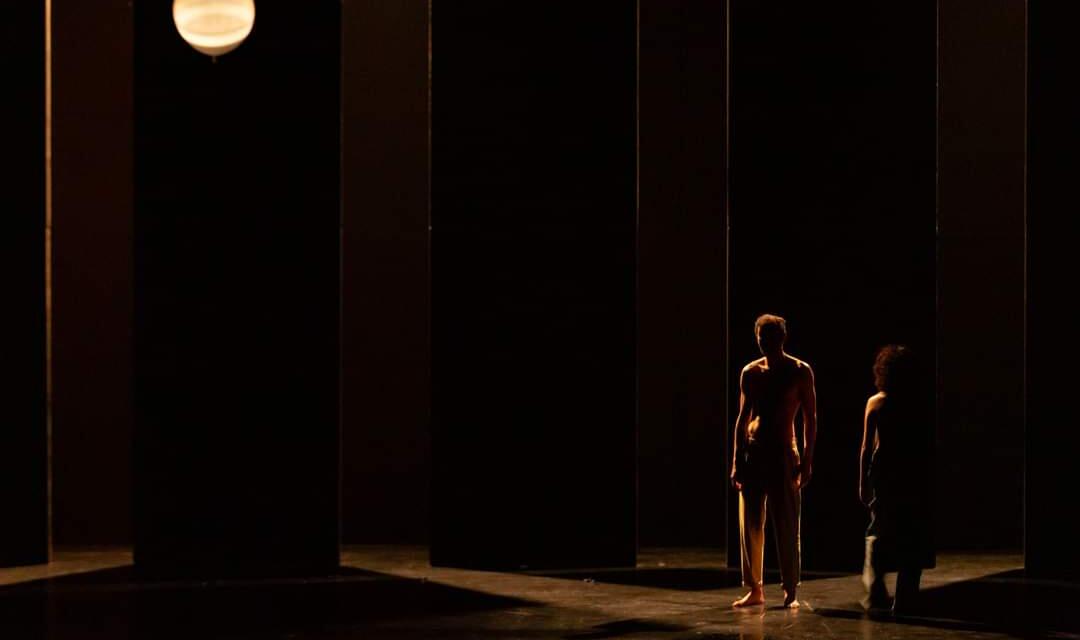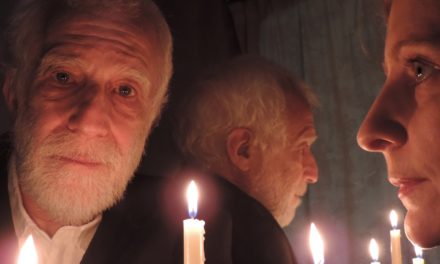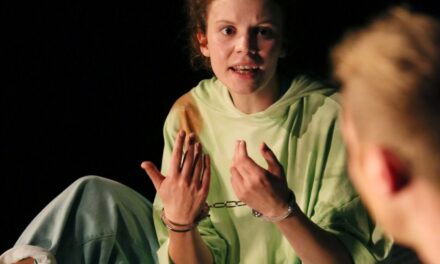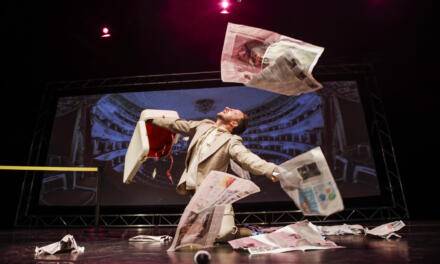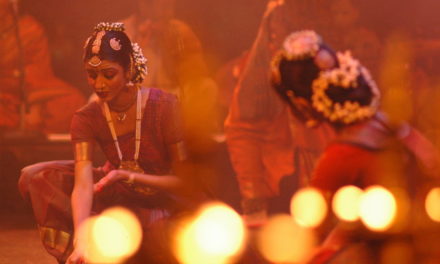The curtain rises on the first edition of the Tunisian National Theater Festival. “Les saisons de la creation” is a cultural event whose main objective is to celebrate theatrical art, presenting new productions and theatrical experiences in Tunisia. The works that stand out for their text, plot, acting, scenography and direction will be rewarded. “From 7 to 14 November 2023 – explains Moez Mrabet, General Director of the Tunisian National Theater – the first session will start to be the first stone in the process building the future of local theatre. This Tunisian theater which has been at the origin of numerous experiences and schools, at a national, regional and even international level, and which continues to inspire and regenerate new creative potential in a constant and dynamic way”.
The festival will also be an “incubator” for all stage professionals and the best incentive to present their productions to an audience thirsty for “national artistic creativity”. Mrabet explains that “The idea of bringing together women and men of theater around a major national event for about a week confirms the desire to refine theatrical dynamism and consolidate the bonds and interaction between creators, on the one hand, and strengthen the relationship with an art-loving public, always looking for innovation and new experiences”.
With the patronage of the Ministry of Cultural Affairs, and thanks to the partnership with the Abdelwahab Ben Ayed Foundation (Faba), prizes with a total value of 80 thousand dinars (over 25 thousand dollars) will be awarded. “A partnership – according to the Director of the Tunisian National Theater– which reflects the belief in the importance of artistic and theatrical cultural creativity in particular. We will strive to make the “Seasons of Creativity” a real step forward in the path of consolidating the originality of Tunisian theatre, which has stood out in the past, shines in the present and will shine even more in the future”. A highly anticipated event which has all it takes to quickly establish itself on the world theater scene with the aim of making the public aware of this Tunisian art in all its forms, from opera as resistance to comedy, encouraging comparisons between spectators and industry professionals. New opera by companies from all over the country are presented to the public.
The National Theater announced that the following have been selected for the first edition from 7 to 14 November: Verma by Ghazi Al-Zoghbani, produced by Artesto Space; Theater for the Rahali structure, Teatro Studio production; 14/11 by Moez Al-Qadiri, produced by the Tunis Opera Theatre; A Flock by Lahmadi Al-Mazzi, produced by Sinbad House; Torch by Amina Dachroui, produced by the Center for Dramatic Art and Singing of Tataouine; Rehab Moayad Ghazouani, produced by the Jendouba Center for Dramatic and Performing Arts; I Dreamed About You Yesterday by Bena Malika and Ibrahim Jumaa, produced by the Tunisian National Theatre; Mayrawsh by Mounir Al-Araqi, produced by the National Puppet Center; Another Need of Muhammad Kawas produced by Kawas Productions; Youssef Mars’ Dog’s Dinner produced by Mars Productions; Corriente by Asmaa Al Thabet, produced by the Sousse Center for Dramatic and Performing Arts; Now Ask by Sami Al-Jouini, produced by the Center for Dramatic and Speech Arts in Zaghouan; Gilgamesh by Ali Al-Nasser, produced by Reston Scène; Al-Dhahirah by Aws Ibrahim, produced by the Tunisian National Theater in collaboration with the Bizerte Center for Dramatic and Performing Arts; Escape from Repentance by Abdel Wahed Mabrouk, produced by the Tozeur Center for Dramatic and Singing Arts.
In the jury, the film and theater actress Fatma Ben Saidane, much loved by the public for her talent and ability to present different and distinctive roles. In addition to her film work, she continues to experience exceptional roles with directors of many generations. Hamdi Hmaidi, professor emeritus of higher education at Tunisian University and member of the board of directors of the Tunisian Association of Theater Critics, has published numerous research and works in international and Tunisian academic journals, thus contributing to enriching the corpus of academic theatre. Twice director of the Higher Institute of Dramatic Arts, director of the cinema department at the Ministry of Culture and vice-dean of the Faculty of Letters, Arts and Human Sciences of the University of Manouba. Wafa Taboubi, theater education teacher and artist who combines acting, writing and directing. She has worked with several directors as an actress in major plays such as “Khamsoun” by Fadhel Jaibi, “Photocopie” by Lassaad Ben Abdallah and “Tasfiyet” by Fahti Akkari. A talented playwright and director, she wrote and directed a play titled “The Widows,” which received the Best Director Award at the Carthage Theater Days in 2017. She also received the Bronze Award at the Jordan Free Theater Festival in 2018, awarded Best Director and Best Actress at the Baghdad International Film Festival in 2021. Nizar Saidi, academic, director and producer, he wrote and directed many important plays including “The Musician”, “The 2 Players”, “The Narrator”, “The People”, “Nooman’s Flute”, “The Narrator 2”, “Souss”, “The Courageous Shepherd” and others. Hatem Tlili Mahmoudi, author and theater critic whose career is distinguished by important contributions to numerous collective works. He won among the others the National Prize for Artistic Studies and Aesthetics.
“Les Saisons de la Création” therefore promises to be an atlas of contemporary creativity and once again reflects the ability of Tunisian artists to anticipate epochs. In these dark times, marked by of conflicts and fears, humanity finds in art, and theater particularly, a source of hope, of life. The inspiration of culture as a means of affirming one’s identity, to be preserved even by bringing it to the stage.
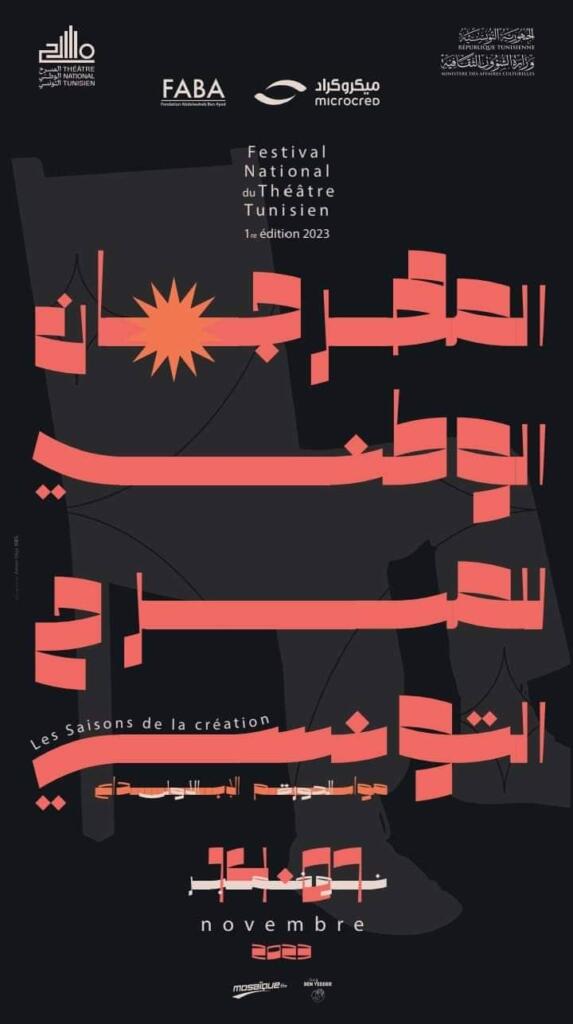
Photo credit: Théâtre National Tunisien.
This post was written by the author in their personal capacity.The opinions expressed in this article are the author’s own and do not reflect the view of The Theatre Times, their staff or collaborators.
This post was written by Vanessa Tomassini.
The views expressed here belong to the author and do not necessarily reflect our views and opinions.

